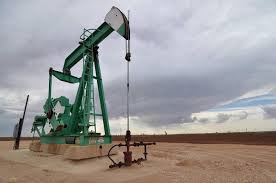
Oil and gas operators in New Mexico think their state regulators made the right decision this week in support of an emergency policy to allow the operators to shut in and deactivate wells without facing a penalty.
The policy was adopted as the price of oil dropped into the negative territory as a result of the coronavirus pandemic, according to a report by the Carlsbad Current Argus newspaper.
The move, announced by the New Mexico State Land Office in early April, saw broad support among oil and gas companies welcoming the relief and environmentalists who sought to limit or stop oil and gas production all together during the pandemic.
As of Monday, domestic crude oil was trading at about $18 per barrel, with New Mexico dropping to just 84 active drilling rigs — the lowest number all year.
As part of the rule-making process, the New Mexico State Land Office held a public hearing on Friday, soliciting comments from oil and gas leaders and activists throughout the state.

The emergency rule would allow state land lessees to apply to the State Land Office to shut in oil wells, while maintaining the terms of the lease for 30 days, with an option for the Office to extend the time to 120 days.
Royalties paid on a shut in well would be calculated on a well-by-well basis but would be capped at twice the amount of the annual rental rate.
Annual rent payments range from 25 cents to the cap of $1 per acre, meaning the royalty owed on a shut-in well would be capped at $2 per acre.
Ryan Flynn, executive director of the New Mexico Oil and Gas Association said the temporary regulations allowing operators to voluntarily curb production until the market stabilizes was a necessary step to ensure one of New Mexico’s biggest economic drivers remained viable.
He said the industry would be key to New Mexico’s economic recovery once the virus was contained.
“New Mexico’s oil and natural gas producers agree that the State Land Office’s emergency rule to allow lessees to voluntarily curb production is a prudent and necessary step amid a historic drop in the global demand for energy,” Flynn said.
Source: Carlsbad Current Argus





